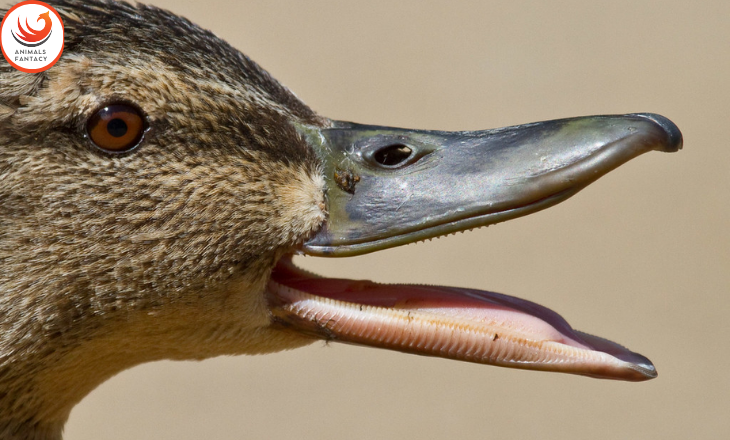Have you ever watched a duck gracefully gliding across a pond and wondered, do ducks have teeth? Despite their friendly quacks and charming waddles, the question of whether waterfowl possess duck teeth has long been a subject of curiosity and debate. In this article, I will explain the fascinating world of ducks to uncover the truth about their dental anatomy. Prepare to be surprised as to explore the mysterious realm of beaks, bills, and yes, even teeth in the world of our feathered friends.
Did Ducks Ever Have Teeth?
Ducks are known for their quacks and waddles. Many people may be surprised to learn that ancient duck teeth. Fossil evidence shows that early duck species had tooth-like structures called denticles in their bills. These denticles helped them catch and eat prey.
Even though modern ducks don’t have teeth, studying these ancient remnants helps us understand what early ducks ate and where they lived. This discovery changed what we thought about how birds have changed over time. It also shows how adaptable birds have been for thousands of years.
Do Ducks Have Teeth On Their Tongues?
Ducks don’t have teeth on their tongues. Instead, they have a special bill that helps them eat. Inside of a ducks mouth the bill, there are small comb-like structures called lamellae. These act like filters, letting ducks strain out small organisms and debris from the water while keeping the food.

The lamellae have tiny projections that help ducks grip and filter out food from the water. This is important for their survival because it helps them get nutrients from their environment. So, even though ducks don’t have teeth on their tongues, their bill with lamellae helps them eat well in their natural home.
What Do Ducks Have Instead Of Teeth?
Ducks don’t have teeth like many other birds. Instead, they have ridges in their bills made of keratin, similar to human fingernails. These ridges work like teeth, helping ducks filter food from the water and get small insects and plants. The lack of teeth is a unique adaptation that helps ducks thrive in wetland habitats.
Ducks also have a special digestive system with a gizzard, a muscular part of the stomach that grinds food with small stones or grit. These stones help break down tough plant material and make it easier for ducks to digest their food. This helps ducks get nutrients from their diet and adapt to different food sources in their environment.
Do Ducks Chew Their Food?
Ducks are unique in their eating habits, as they don’t chew their food like humans do. Instead, ducks have a specialized bill that allows them to filter and swallow their food whole. This may seem strange, but it’s an efficient way for ducks to consume their diet of aquatic plants, insects, and small fish.
The absence of teeth in ducks also contributes to their lack of chewing ability. Instead, ducks use serrations along the edges of their bills to help break down food before swallowing. This is an example of how ducks have evolved specific adaptations for their dietary needs.
How Do Ducks Eat?
Ducks are intriguing animals with a unique way of finding food. They use a technique called dabbling, where they lean forward and put their heads in the water to search for food. Their beaks have special filters that help them sift through mud and water to catch small insects, plants, and even tiny fish. This amazing skill allows ducks to find food in different places in their wetland homes.
Ducks have a very effective digestive system that helps them get the most out of their food. After eating, ducks store the food in a stretchy pouch in their throat called the crop. This lets them eat a lot at once and then digest it slowly while resting or doing other things. These details about how ducks eat show how they have adapted to thrive in many different watery environments.
Do Ducks Swallow Food Whole?
Ducks don’t swallow their food whole. They have a special way of digesting food. When ducks eat, they use their bills to pick up food. Instead of swallowing it right away, they mix it with saliva to make a soft mass called a bolus.

The bolus goes through the duck’s oesophagus into its gizzard. Muscles and small stones in the gizzard help break down the food. This lets the duck get important nutrients from its food before moving on to the next step of digestion. Ducks have a complex system for processing their meals.
Do Ducks Eat Until They Are Full?
While ducks are known to have hearty appetites, they do not eat until they are full. Instead, they have a unique eating behavior that involves constant foraging throughout the day. This means that while they may consume a good amount of food, ducks rarely eat enough in one sitting to reach the point of feeling full in the way humans or other animals might.
Duck’s feeding habits are influenced by their instincts and environment. In the wild, ducks need to remain alert and capable of taking flight at any moment for their safety, so overeating is typically avoided. This behaviour allows them to maintain readiness for potential threats while also being able to sustain themselves through regular but moderate feeding intervals.
Do Ducks Bite?
Ducks are usually not mean, but they might bite if they feel scared or trapped. Domestic ducks are usually calmer, but wild ducks can get defensive and nip if you get too close. This is more about protecting themselves than being mean. It’s important to be careful around ducks, especially during mating season or when they have babies.

Some types of ducks have sharper bills, so they might nip harder if they feel threatened. Knowing how ducks act and look can help stop them from biting. Giving them lots of room and not trying to feed them by hand can also lower the chance of getting bitten.
Does A Duck Bite Hurt?
Ducks may seem harmful and can bite pretty hard but they look cute. Even though they don’t have sharp teeth, their beaks are strong and can cause discomfort or bruising when they nip at you. The severity of a duck bite depends on the bird and the situation. A startled or defensive duck is more likely to give a painful nip than a calm one.
Also, bigger ducks have stronger bites because of their size and strength. So, it’s important to be cautious and respectful around ducks, even though some people might not think their bites are a big deal.
Conclusions
The question do ducks have teeth has long intrigued both scientists and the general public. Through careful examination of their anatomy and feeding behaviour, it is now widely accepted that while ducks do not have true teeth like mammals, they possess specialized structures known as lamellae that serve a similar purpose in their unique digestive system. Ducks can filter and strain food from water using special structures instead of teeth. Studying duck anatomy helps us understand how they have evolved to survive and adapted to different environments.
FAQs
How Many Teeth Does A Duck Have?
Ducks don’t have teeth, but they have a special bill that helps them filter and strain food from the water. This is better for their diet and feeding habits than having teeth. Ducks use their bills to catch and eat food, and also to groom themselves.
What Are Duck Teeth Called?
Ducks and other waterfowl have special teeth called lamellae. These are not real teeth but are more like combs on the edges of their bills. Lamellae help them filter food from the water, like plants, insects, and other small creatures.
What’s A Duck’s Mouth Called?
The inside of a duck’s mouth is called a bill. The bill is a special part of ducks and other water birds. It helps them find food and talk to each other. It is wide and flat, with a rough edge that helps the duck get food from the water or mud.
Are Ducks Intelligent?
Yes, ducks are considered to be intelligent like other animals. They can learn and adapt to their environment, as well as exhibit problem-solving skills. Ducks are social animals and communicate using sounds and body movements to interact with each other.

